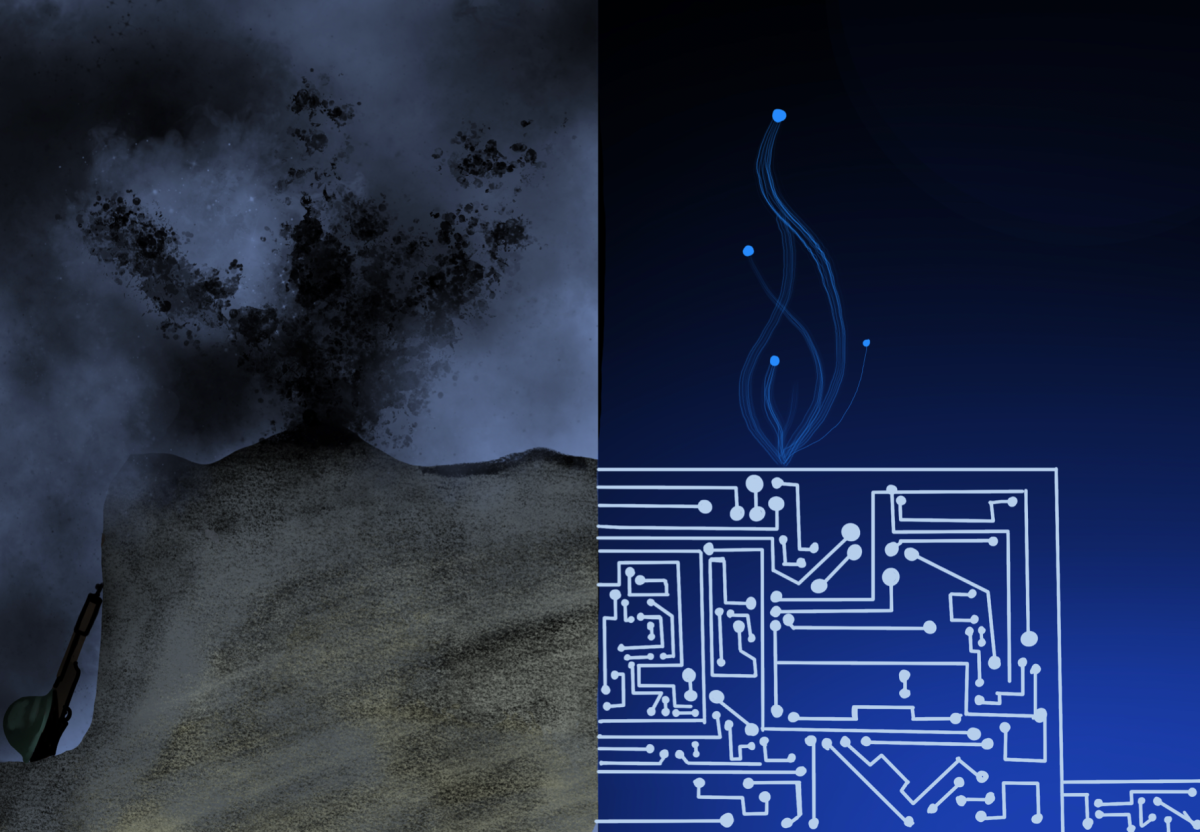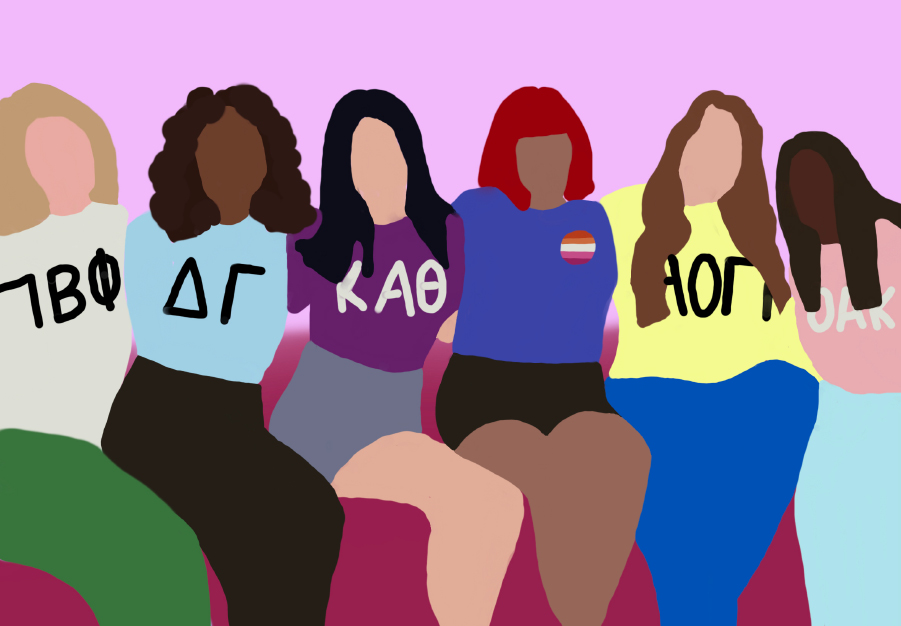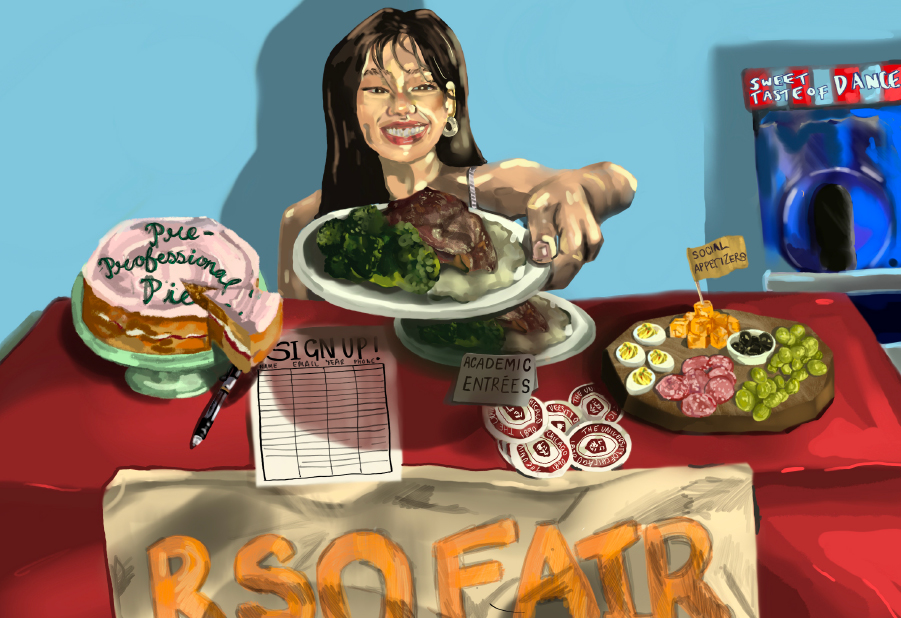On February 3, I submitted a column to The Maroon titled “Everything Is Bad.” It thankfully remains unpublished, but it ran through the bad news of late 2019 and early 2020, highlighting the U.S.–Iran spat, Australian bushfires, Brexit, and a “coronavirus that continues to take lives and remains enigmatic,” and argued that we could make positive change even in the face of these issues. While discussing the shelter I’d been given from the consequences of many of those events, I wrote, “I live in a country with advanced public health systems that can probably detect and quarantine cases of the coronavirus.”
I’ve been on a study abroad program this year and felt disconnected from UChicago life, but I may as well have been an alien from some faraway planet with how out of touch that comment was. I should be up there with the other members of the COVID-19 Clown Crew: the IOP whiteboard girl, the anti-lockdown Stanford scientist, the New York Post, The New York Times, the U.S. Surgeon General, Donald Trump, and the World Health Organization. I do not want to be alarmist, but students should confront the likelihood of autumn quarter being held online in light of the extensive risks and logistical difficulties of reopening campus. Furthermore, we have to understand that as much as students and professors may prefer in-person education, another online quarter will likely be the most prudent choice this fall.
In an email to members of the University community on April 24, the Provost Ka Yee Lee wrote, “Planning for the Autumn Quarter, scheduled to begin on September 29, is under active discussion, and we will need further information to make a final decision. We plan to make a decision by the end of June.” Though it did not provide any definite answers, the provost’s email suggests that the situation is up in the air. Most of us would like to return to normalcy as soon as possible, but there is a crucial distinction between “possible” and “prudent.”
There are similar calls for the reopening of the economy which stem from valid fears that jobs will be lost and institutions may crumble. Christina Paxson, Brown University’s president, argued in a *New York Times* op-ed that colleges must reopen in the fall. Though her wish to bring students back to campus and infrastructural plans for a campus reopening are valuable to consider as part of higher education’s long-term response to the pandemic, she fails to consider that a rushed reopen is conditional on too many factors to be viable on such short notice. Will universities realistically be able to guarantee a plan by the end of June to keep their communities safe in the face of an enigmatic pandemic? The effects of this pandemic are unpredictable, and it is of paramount importance to consider contingencies other than a quick, rosy global recovery that will let us get back to our one-dollar milkshakes and sleep deprivation.
Despite Paxson’s ambitions, universities will certainly not be the first to open if coronavirus restrictions are lifted gradually. Dr. Anthony Fauci advised a “rolling reentry” while being clear that there is no definite timeline. Regarding a societal solution, UChicago professor Anup Malani contemplated the possibility of first releasing everyone but the elderly, or only those who have recovered. In a university context, the former would mean that elderly professors and members of staff would not be on campus, which would curtail normal university operations. Immunocompromised students, faculty, and staff would also be at severe risk and not be able to return to campus. If we were to allow only recovered individuals on campus, we would need mass testing—before entering campus, and at regular intervals afterwards—and tracing with little room for error, as well as the knowledge that people cannot be reinfected, which we currently do not have. UChicago reported 16,482 degree-seeking students as of winter 2020, which would make it a hotbed for infection if there were a resurgence of cases. Furthermore, international students comprise 21 percent of UChicago’s student population, which also makes the reopening of campus dependent on whether they are allowed back into the U.S. by the end of September.
Even if we set aside these challenges, it is difficult to imagine a coherent set of measures that will make reopening campus viable if the virus has not been contained. The provost mentioned in her email that “forms of social distancing and other preventative measures are likely to be necessary for the foreseeable future.” Would students, faculty, and staff have to be retested at UChicago Medicine during the quarter? If social distancing measures are still in place, would large lectures continue to take place online, with small classes taking place in large lecture halls to ensure distancing? Dining halls would also be a concern—would we cap dining hall capacity? Would students be assigned time slots to access dining facilities? It is likely that all undergraduates in campus housing would require single rooms as a matter of safety, but our current dormitory infrastructure cannot accommodate such a change. If there were to be a resurgence of cases, we would endanger not only the UChicago community but also the other residents of Hyde Park and Chicago.
By contrast, if autumn quarter is taken online, the UChicago experience will be severely diluted, a fact we are already observing this spring. Incoming first-years will miss out on O-Week and in-person RSO fairs during a high school–college transition that is often challenging even during non-pandemic times. With no sports and a dearth of extracurricular interactions, even if some RSOs are able to meet online without difficulty, making friends and sharing experiences in college will be doubly difficult. The best memories I have of my college experience so far are of sitting with my friends in the west lounge of South (try doing that over Zoom) and pretending to do homework, then taking the shuttle to Ratner at 10 p.m., playing basketball for an hour, and then rushing to Baker to get to fourth meal before being kicked out at midnight. I cannot imagine trying to make friends through Zoom lectures. We will miss out on brilliant minds, influential speakers, ideas, research, art, and so much more. For those of us looking for postgraduation jobs in a debilitated economy, not being able to meet potential employers in person will undoubtedly hamper our opportunities.
Some schools are already considering canceling their autumn terms and postponing the start of the academic year to 2021. If UChicago decides to follow a similar plan, the administration will have to decide whether to have the summer quarter be mandatory to make up for the lost term—implying an uninterrupted year of school for most students—or to have the Class of 2021 graduate in autumn 2021, which seems unlikely unless there is some national shift in graduation dates across universities. Even if summer quarter is not mandatory, a cancelled autumn quarter will necessarily lead to an uptick in summer enrollment with students trying to negate the effect of the missed quarter.
Overall enrollment will also be affected if autumn quarter is held online. Students who wish to and are able to afford a leave of absence may pause or defer their degree until campus is reopened. This may disproportionately affect international students, especially if border controls are unclear or if certain countries lift restrictions too early and spark further flare-ups of the virus. Even if campus is reopened, some students may still not return out of fear of a resurgence or if the decision to reopen is made too hastily and without proper prevention measures. If enrollment numbers are down, will UChicago be able to continue paying faculty and staff and to provide sufficient financial aid for those who need it? As a university with a high sticker price and a substantial endowment, UChicago may not be as acutely affected as other universities, but this question is nevertheless necessary to consider.
Because I was abroad before the University transitioned to distance learning, I haven’t seen campus in almost a year. I don’t want my final year to play out like this. I will be overjoyed if we are able to curb this pandemic and find a concrete solution, not only for the University but a panacea for everyone in the world dealing with this issue. The timeline is incredibly hazy, and it is difficult to predict what will happen even next month. I do not want to cause any panic and am well aware that none of the contingencies I addressed may actually match the reality of the coming few months. However, the best we can do is to prepare for unpleasant possibilities and hope that they don’t come true. Considering these possibilities early comes at minimal cost.
I hope the administration is taking all these factors—and others—into account and will keep us updated as circumstances change and decisions are made. As members of the University community, we need to keep these possibilities in mind and make sure we communicate our individual concerns to the University, so that they may be considered when the final decision is made. In the meantime, I hope everyone is following social distancing guidelines and doing their best to keep themselves and others safe and healthy.
Soham Mall is a third-year in the College.







